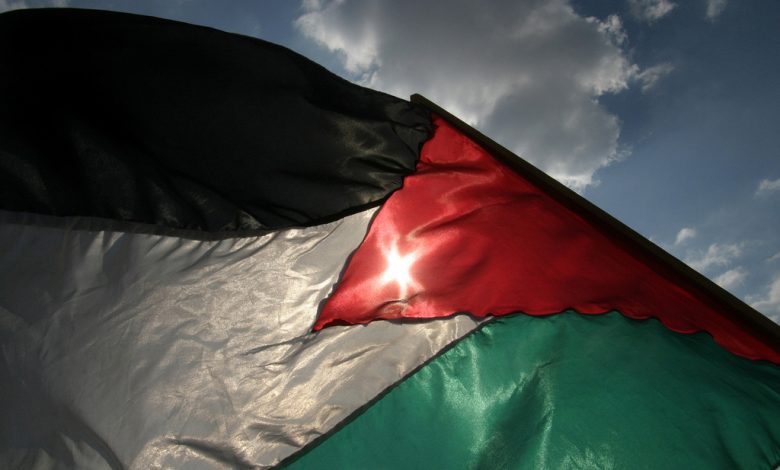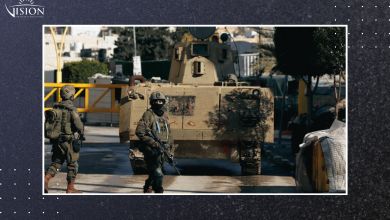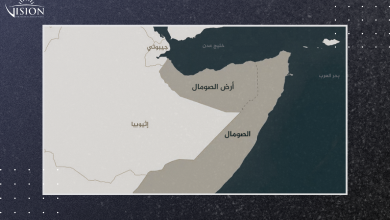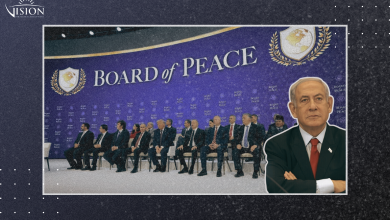Broad Front for National Deliverance: Exigency and Feasibility

The ongoing status of the lack of Palestinian political horizon hindering any new progress to put an end to internal political division as well as the absence of democratic life in light of the cancellation of the latest parliamentary elections have promoted a number of Palestinian political parties and many national figures to talk about the possibility of announcing a call for forming a broad national front under the name: broad front for national deliverance.
To examine the exigency and feasibility of this move, Vision Center conducted a number of interviews with some key political figures and experts in order to give answers to some significant questions including: Is it actually necessary? Could such a front contribute to the remedy of national stubbornness and prejudice? How would such a move serve the national cause? What barriers and obstacles are facing such efforts? And what potential success factors may be thought of?
Here is the most important points highlighted by the interviewees:
- Any new body or front to be formed should not be a replacement of the Palestinian Liberation Organization (PLO) and may not revoke the PLO’s representation of the Palestinian people under any circumstances for this would be the main reason of its failure, which is attributed to two dimensions: the national account where Palestinian parties would not take any part in it; and the regional and Arabic account where it cannot obtain any recognition or acceptance.
- What is more important than the formation of a broad front is putting pressure on the reactivation and the revival of the PLO to recover its representation of all of the Palestinian people with the participation of all Palestinian parties and powers.
- The success factors of such a move stem from focusing on common Palestinian issues and the constants of the Palestinian cause, and from avoiding controversial issues.
- It is so significant, before establishing the front, to construct a national program to function as the cornerstone of the national front where national consensus and representation of all the Palestinian people and parties are taken into consideration.
- The PLO bodies and parties would not approve to indulge in any other organization either for not losing its revenues or to prevent prospected pressure. Accordingly, the parties who are capable for representing the Palestinian people within such a national front are those who are not represented in the PLO.
Listed below the interviewees’ responses:
Dr. Mustafa Barghouthi, Secretary-General of the Palestinian National Initiative Party
Suggesting any proposals or presenting any thoughts on the Palestinian cause must be held on the grounds that it should meet the need for a united political leadership for all Palestinians all over the globe, which, in the first place, was the foundation of the formation of the PLO as the principle representative of all the Palestinian people. However, its losing this privilege does not mean there is a necessity to bypass this representative body of Palestinians.
What is required in this situation comprises two things: firstly, creating a national struggle program that would unify all Palestinians based on the common grounds and national constants; and secondly, a representative body, which is supposed to be the PLO. Thus, we refuse the formation of any organization that would replace the PLO. However, a more effective move to be taken is uniting the efforts by establishing a national front that guarantees retaining the constants and national consensus to overcome the failure status of the Palestinian political reality resulted from neutralization of Palestinian organizations, added to the policy of exclusivity that is dominating the Palestinian political scene, which is so risky and dangerous if kept ongoing.
Hasan Khreisheh, Former Deputy Speaker of PLC
With the presence of the PLO, I believe that we do not need to form any new bodies or organizations. We just need to retrieve the PLO after it has been seized by a solo party.
Many attempts were previously exerted to establish alternatives to the PLO, but the efforts were in vain. So, two fundamental needs must be met; first, a collective representation of all Palestinians, any future partial representation would be brought to a dead end for it would be refused by many Palestinian factions and bodies. Second, it is a must for any new representative body to be efficient and active in all residence places of the Palestinian people, which would not easily be achieved either due to refusal of recognition or because of the inability to encompass the Palestinians all over the globe. And, this would lead us again to the status quo of the PLO.
However, what the Palestinians are de facto in need of is to create a status of Palestinian pressure aiming at conducting the Palestinian Legislative Council’s elections with the participation of all Palestinian parties and bodies in order to have a representative PLC of all Palestinians, which then allows for talking about the PLO activation. Second, it is so critical to unify the efforts exerted in this regard to guarantee its success. The idea of building up a national front should be discussed collectively with coordination among all Palestinian factions and should not be presented as a replacement to any existing body. Besides, the move should be addressed carefully in order not to deepen division instead of unity.
Ayman Daraghmeh, Former Deputy in PLC
I consider the formation of any new body or national front while we have the PLO would be unnecessary, not because there is no need for it, but due to the difficulty to guarantee its success for it had been tried before in vain. Rather, it has aggravated the crisis.
In light of the current local, regional and global circumstances taking place in the meantime, such a move would be considered unrealistic, and its disadvantages may overweigh anticipations.
In my point of view, there are numerous barriers at many levels, especially at the international level and in the Arab world. The PLO is an officially recognized organization that is represented in the Arab League, the UN and the Organization of Islamic Cooperation. Seeking these organizations’ recognition of an alternative or even an analogous representative structure seems out of the question. The PLO is internationally recognized as a representative of the Palestinian people where Palestinian embassies are open in so many international capital cities. The fact that the world has still been dominated by the US and the West makes it so complicated to promote an alternate to the PLO in the current time, especially that it must be taken into consideration that any new front to be formed would be led by resistance factions which are labeled as terrorist by most western countries.
At the Palestinian level, a fundamental point should be realized that the PLO is still possessing official, financial and practical power in the West Bank and through its embassies and consulates worldwide. Therefore, the popular dissatisfaction with the PLO’s performance does not guarantee the willingness of the Palestinian people to accept any alternative especially that the daily interests of the Palestinians are strongly associated with the Palestinian National Authority, which is emanated from the PLO. Besides, the Palestinian people has been tired of the status of internal division and accordingly would see such a front as a new move toward more division. For that, the prospected front would not have a strong unified popular incubator; not to mention that it would not get the approval of any PLO parties which would definitely resist the formation of any parallel or alternate body.
I propose putting more pressure, by people, unions and factions, on the official authorities to revive the PLO for it is not confined to only one party. I recommend to constitute a committee that leads, manage, put pressure and mobilize people for the purpose of reforming the PLO instead of creating a new alternate national front.
Hani Al-Masri, Director General of Masarat, the Palestinian Center for Policy Research and Strategic Studies
I assume that there is no need for new national institutions in the meantime compared to the need for a consensual political program capable for bringing about change at political and intellectual levels. This requires collecting strength for rectifying the national program which would accordingly lead to the reform and revival of the PLO.
To that end, some points should be taken into consideration: first, setting a program of specific provisions as an introduction to strengthen the notion of national partnership and to put pressure on the PLO to obtain its agreement. This does not constitute a new body because, I believe, the PLO is the broad national front which should comprise all the Palestinians. This move could be achieved by the invitation to a national conference that aims at discussing partnership rather than sticking to details that would lead to nothing but failure.
Second, Hamas Movement should get ready to put an end to its control over the Gaza Strip, or at least show some progress in this regard in order to be able to become a full partner in leading the Palestinian political life.
Third, one of the essential points of national consensus is the idea of handling resistance as a national issue within a national reference. It should not be dealt with as belonging to a certain specific faction.
Fourth, and the most important, is putting pressure for the purpose of reactivating the democratic choice and conducting elections.
I would say that among many obstacles facing the formation of a broad front is the reliance of some of the Palestinian factions particularly the PLO parties on financial allocations which would hinder the presence of any of those factions within any future efforts for the establishment of a broad national front.
Another barrier is the impact of the outside world, whether at the Arabic, regional or international levels, with regards to issues such as recognition, dealing with it or even putting pressure on some parties to withdraw its positions. Yet, the most important stumbling block is the Israeli occupation which would not allow such a united national front to be brought to light due to the fact that the emergence of a united Palestinian body definitely threatens its existence. It is not a call for surrender, but a warning of the hurdles and consequences.
Tamara Haddad, political activist, and former candidate for the PLC elections
In my opinion, it has been the time to form a broad national front in order to face the current challenges especially after the failure of Fatah Movement in organizing its internal situation and in improving its relations with the other Palestinian factions including the PLO parties.
Fatah Movement has been seeking the exclusion of all other factions even those under the PLO. It also does not care about national partnership or working within a true national program to confront local challenges and to face the ongoing Judaization.
This gives birth to the necessity of establishing a broad front away from Fatah Movement which must be held truly on the basis of national work that embraces all the factions of different perspectives along with the Palestinian public, unions and syndicates and, at the same time, would rebuild the PLO on the grounds of national partnership rather than personal interests.
The formation of the front must be managed by Palestinians in the West Bank, Gaza Strip and Occupied Palestine in 1948 as well as the Palestinians living abroad. It would not be a replacement of the PLO, but a front that aims merely to put pressure on the PLO for reformation purposes.
I strongly believe that if the front shows its capability for uniting exerted efforts of all kinds, legal, popular and faction efforts, it would overcome the crisis with the help of a mechanism agreed upon by everybody. Individual work alone will not be fruitful since the front needs a huge funding to accomplish its anticipated outputs within a national agenda that is not subject to external policy.
Creating a national front will certainly serve the Palestinian cause because it leads to its revival in light of the Israeli vision of the so called New Middle East and the New Abraham Accords which will end the Palestinian cause.
The obstacles and challenges that face the front at the Palestinian level are merely political such as the anticipated position of Fatah Movement which would confront the broad national front instead of getting involved in it. The Palestinian National Authority and its security forces will of course not accept such a threatening body. Regarding the Israeli side, the challenges are represented in arresting everyone who thinks of supporting the formation of it, not to mention the financial and legal issues.
The national Movement has managed to record some achievements in this regard, but it has not been accomplished yet for the lack of key components, most importantly the belief in the idea and collective work as well as the scarce of national leaders who would support the national front, added to the inability to communicate between Palestinians residing in Gaza and the West Bank. I can see that the national front could be created by all the factions, work syndicates, unions, the local and civil society organizations and all segments of the Palestinian people.
Esmat Mansour, political analyst and former member of the DFLP
We all are aware of the lack of leadership, the solo representation of Palestinians, the absence of the legislative institutions and a government unifying all Palestinians, as well as the continuation of the Palestinian internal divide. This brings up an urgent question about the actual need for the establishment of a broad national front. I believe that any project which is far from or alternative to the PLO or Fatah Movement will deepen the Palestinian internal divide and will affect the representation of the Palestinian people especially in light of the marginalizing status of the Palestinian cause. Accordingly, it would be justified at the regional and international levels especially in light of the Israeli progress in recording many breakthroughs in the Arabic and regional arenas. Yet, such an effort would weaken the Palestinian cause for it would be considered as part of the internal conflict over power. However, despite the realistic idea and its national requirement, the timing is inappropriate, which sheds light on the need, at the present time, to unify the Palestinian efforts to put pressure on the authorities to reform and develop the PLO.
What can be done now is working on achieving the conduction of elections for the unification of Palestinians not on the expense of the Palestinian factions which are facing deep crises and have been the stumbling block in front of the revolution of the Palestinian people. So, this proposal would not serve the Palestinian cause at the meantime even if the PLO’s representation of Palestinians approaches zero.
I doubt the success of such a move for, to be more realistic, there are new generations who have been witnessing and taking part of what is going on despite being outside such traditional frameworks. Those generations are looking for different approaches that represent them well and take regard of their own perspectives and ambitions. This of course urges for continuous seeking of new proposals and suggestions, which may require more time.
This paves the way for a key question: if new generations are not involved in the organizational and faction frameworks, how could any new framework represent these generations? And, would there be a democratic frame that would be open to everybody? So, any thought should be thoroughly addressed before being brought up to discussion.
Regarding the factions that would represent the front, it is rational to believe that only independent parties would get involved. On the other hand, the parties falling under the PLO would not take part in any framework, which is the outcome of many bonds that prevent such involvement.
As for the possibility of any potential objection to the idea, I foresee a strong negative reaction that such a move would be met with rejection, and perhaps accusations of betrayal and breaking the Palestinian ranks.
Mukhaimer Abu Saada, Professor of Political Science at Al-Azhar University in Gaza
Forming a broad national front would be perceived as a replacement of the PLO, which would lead to the belief that there is an attempt to take over the PLO and therefore would end up with a more tragic internal political scenario.
There is, unfortunately, solo political administration practiced by the Palestinian National Authority in the West Bank and by Hamas in the Gaza Strip, which prioritizes the need for working on achieving national dialogue which would lead to the revival of the PLO and other national bodies, before talking about promoting Palestinian frameworks or forming new national bodies because it will deepen the internal divide.
I would say that if the broad national front fails to represent all Palestinians, especially Hamas and Fatah, it would be always accused of replacing the PLO and would not achieve its goals.
Besides, the fact that the PLO factions depend on the PLO political money makes it impossible for them to get involved in the formation of any national bodies away from the PLO, despite the reality that it has become incapable for bringing up any actual change due to weakness.
It is also worth mentioning that any new national front would not get Arabic and regional recognition because the Arabic, regional and international political systems recognize the PLO as the representative body of the Palestinian people.
Aside from all that, it is not acceptable to talk of national options in light of the existence of the Palestinian President Mahmoud Abbas for he is part of the crisis. His cancellation of the latest legislative elections has prevented a great opportunity of developing and reforming national institutions. Also, Fatah Movement would not approve getting involved in the formation of any new front for that would mean losing leadership.





